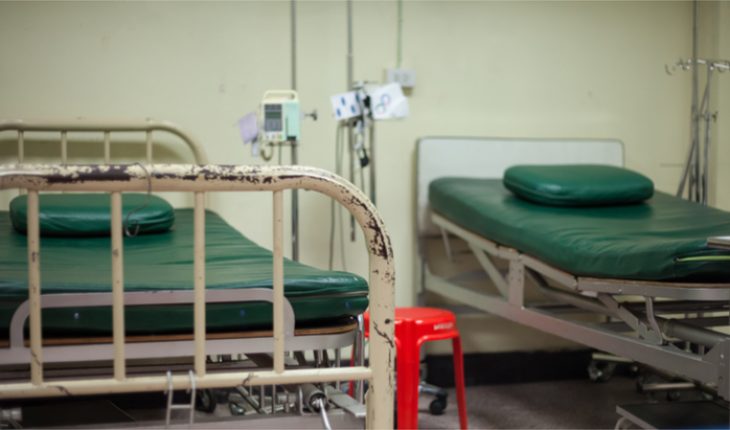Every day we hear more horrifying stories of people lying on trolleys in A&E for hours at a time, whilst waiting to be treated. We are told of ambulances taking forever to get to casualties and the elderly unable to be discharged from hospital because of a total breakdown in community and social care. But is this really a new problem?
I worked as a Hospital Manager at Hammersmith, Charing Cross, Queen Charlotte’s and Acton Hospitals back in the 1990s. We repeatedly had to cancel operations back then because of a lack of beds.
I woke up as the 7th bed plonked right in the middle of a 6-bedded ward!
I myself, needed an appendicectomy in 1998 and my operation was about to be cancelled because the beds were all taken – but they needed me back at work; so, they undertook the operation and I woke up as the 7th bed plonked right in the middle of a 6-bedded ward! There were insufficient nurses to cope with the extra bed, so I went home that afternoon, just hours after the operation.
Things were different then. The pressure appeared to be more seasonal and it was more often the routine, less urgent operations that were cancelled. Much of the problem was as a result of problems discharging elderly patients; the so-called ‘bed- blockers’ clogging up the system and this was worse in the winter months.
Now the problem appears to be an issue from both sides. There are more emergency patients, putting additional pressure on our ambulance services, more complex surgery and serious trauma patients. It is now commonplace for large teams of specialised medics to work together to operate and treat incredibly complicated conditions – and treatments are being undertaken that would have been a total fantasy in the 1990s. These complex treatments and high-level trauma have put huge additional pressure on ITU and high-dependency beds. The cost of treating these patients is astronomical and every year hospitals have been expected to deliver more for less – with an on-going cost improvement programme that has been whittling away at the infrastructure and budgets over the last 30 years.
How can we, as potential consumers, help this struggling system?
Contrary to popular opinion you are never treated any quicker if you have arrived by ambulance
Firstly, we can think carefully about whether we need the resources offered. Following an accident, do we always need an ambulance? Taking a first aid course can be the first step to learning to identify how seriously ill or injured the casualty may be. Often, they don’t need any second line services at all. Ambulances are frequently called as transport, rather than for their medical expertise and sometimes it is can be more appropriate to get yourself to A&E or your GP. Contrary to popular opinion you are never treated any quicker if you have arrived by ambulance.
Secondly, we can be better about cancelling GP and hospital appointments if we are unable to attend. The NHS can be inefficient, but thousands of hours are wasted every year through missed appointments and in an over-subscribed system these are all potential time slots that others could use.
I am horrified at the incredible waste of valuable time and energy and unbelievable stress to patients and their families with so many operations cancelled daily. The knock-on effect is horrific. We have to find new, less invasive ways of treating patients, a better system for hospital discharges and a more efficient way of running this service.
Is the bed crisis a new phenomenon? – absolutely not, and there is no cure for our crippled system visible in the near future either!
Emma Hammett, Hospital Manager for General Internal Medicine at the Hammersmith Hospitals NHS Trust from 1990 to 2000. Now Founder and CEO of www.FirstAidforLife.org.uk and www.onlinefirstaid.com.
- What is a seizure? - 13th March 2025
- Febrile Convulsions and Seizures in Children - 13th March 2025
- Why women are less likely to receive CPR or survive cardiac arrest - 6th March 2025







